Last updated 12 months ago | Originally Published: September 27, 2023
Unlock the Health Benefits of Peanuts Today and Create a New You
You might think of peanuts as a simple, convenient snack, but have you ever considered the powerhouse of nutrients packed into these small nuts? If you’re someone who is conscious about health or loves peanuts, this blog post is designed specifically for you.
Peanuts are often overlooked in discussions about healthy foods, overshadowed by more exotic nuts and seeds. However, they offer a range of health benefits that can contribute to a balanced lifestyle. From heart health to weight management, peanuts are more than just a tasty treat; they’re a small but mighty addition to your diet.
Located in Newport, Kentucky, our store, Candy Retailer, is more than just a place to satisfy your sweet tooth! Indeed, we also offer a wide range of nuts, including peanuts, and we’re 100% committed to providing quality products and valuable information. That’s why we’ve dedicated this blog post to uncovering the health benefits of peanuts.
So, are you ready to transform your health one peanut at a time? If so, stick around as we break down the nutritional profile of peanuts and reveal how incorporating them into your diet can offer you a host of health advantages.

The Health Benefits of Peanuts Are Mind-Blowing
In this section, we’ll explore why peanuts are more than a convenient snack. We’ll dive into their widespread popularity and the nutritional powerhouse they truly are. If you’ve ever wondered why peanuts deserve a spot in your daily diet, you’re about to find out. So, let’s get started and keep the excitement rolling!
The Universal Appeal of Peanuts
Peanuts are a staple in households, parties, and even high-end culinary dishes. Their versatility makes them a go-to snack for people of all ages. From peanut butter sandwiches to trail mixes, peanuts are everywhere. But their ubiquity isn’t just a result of their delicious taste; it’s also because they are affordable and easily accessible. In a nutshell, peanuts are universally loved for their convenience, affordability, and flavor.
Nutritional Goldmine in a Shell
Peanuts are not just about satisfying your hunger; they come loaded with essential nutrients that contribute to your well-being. They are rich in protein, healthy fats, fiber, and a range of vitamins and minerals.
| Nutrient | Benefits | Additional Information |
|---|---|---|
| Protein | Muscle Repair and Growth | Ideal for post-workout snacks |
| Healthy Fats | Heart Health | Contains monounsaturated fats |
| Fiber | Digestive health | Helps in weight management |
| Vitamin E | Antioxidant Properties | Good for skin and hair |
| Magnesium | Bone Health | Also aids in nerve function |
| Potassium | Regulates Blood Pressure | Essential for muscle function |
This table offers a snapshot of the key nutrients found in peanuts, their associated health benefits, and additional information that can guide you in making informed dietary choices. Incorporating peanuts into your diet can be a simple yet effective step toward a healthier lifestyle.
Peanuts are a Nutritional Powerhouse
As we continue to explore the health benefits of peanuts, it’s crucial to understand what makes them so beneficial. This section will focus on the nutritional profile of peanuts, breaking down the essential nutrients and vitamins they contain.
Stay tuned if you’re keen to know what you’re consuming when you munch on peanuts and how it contributes to your health. This information could be a game-changer for your diet!
The Universal Appeal of Peanuts
For good reasons, peanuts have earned their place in snack bowls, lunch boxes, and even gourmet recipes. They’re not just a tasty option; they’re also incredibly versatile. You can find them in various forms—salted, unsalted, roasted, or even peanut butter.
Their widespread popularity can be attributed to their unique combination of taste, nutritional value, and affordability. So, the next time you reach for a handful of peanuts, know that you’re choosing a snack that is both delicious and beneficial for your health.

Unveiling the Nutrient-Rich Profile of Peanuts
While we’ve already touched on some of the key nutrients found in peanuts, such as protein, healthy fats, and fiber, there’s more to discover. Peanuts are also a good source of essential vitamins and minerals that play a vital role in various bodily functions.
- Niacin (Vitamin B3): Supports metabolism and is good for skin health.
- Folate (Vitamin B9): Important for cell division and the formation of DNA.
- Phosphorus: Essential for bone health.
- Zinc: Supports the immune system and wound healing.
- Copper: Helps in energy production and iron metabolism.
These nutrients complement the previously discussed ones, making peanuts a well-rounded option for anyone looking to boost their nutrient intake.
For instance, niacin can be particularly beneficial for those looking to improve their metabolic rate, while folate is crucial for pregnant women. These nutrients make peanuts not just a snack but a small package filled with health-boosting properties.
By understanding the nutritional profile of peanuts, you’re better equipped to make informed choices that align with your health goals. So, the next time you’re at Candy Retailer in Newport, Kentucky, you’ll know exactly why picking up a pack of peanuts is a step in the right direction.
Our goal in the section was to deepen your understanding of the nutritional richness of peanuts, offering you more reasons to include them in your diet. With this knowledge, you’re not just snacking; you’re nourishing your mind and body!
1. Heart Health: The Cardiovascular Benefits of Peanuts
When it comes to heart health, peanuts are a snack you can feel good about eating. Rich in monounsaturated and polyunsaturated fats, peanuts can help lower bad cholesterol levels, thereby reducing the risk of heart disease. But that’s not all; peanuts also contain other nutrients that contribute to cardiovascular well-being.
- Monounsaturated Fats: Helps lower LDL (bad cholesterol) and raise HDL (good cholesterol).
- Polyunsaturated Fats: Aid in reducing overall cholesterol levels.
- Fiber: Helps regulate blood sugar and cholesterol levels.
- Antioxidants: Such as resveratrol, help in reducing inflammation, a key factor in heart disease.
- Potassium: Helps in regulating blood pressure, reducing strain on the cardiovascular system.
Taking care of your heart is not something to postpone for the future; it’s vital at every stage of life. Heart diseases are among the leading causes of death globally, making it crucial to adopt heart-healthy habits early on.
Including peanuts in your diet is a simple yet effective way to contribute to your cardiovascular health. By making mindful choices like this, you’re not just snacking but investing in your long-term well-being.

2. Weight Management: How Peanuts Can Help You Stay on Track
Managing your weight doesn’t have to mean giving up on snacks; it’s all about choosing the right ones. Peanuts can be a valuable ally in your weight management journey due to their high fiber and protein content. Both of these nutrients contribute to a feeling of fullness, helping you avoid overeating and making it easier to stick to your calorie goals.
| Tip | Description | Additional Information |
|---|---|---|
| Portion Control | Use a measuring cup to ensure you’re consuming an appropriate serving size. | Helps in calorie management |
| Pair with Fruits | Combine a small serving of peanuts with fruits like apple slices. | Provides a balance of fiber and sugar |
| Smoothie Boost | Add a spoonful of peanut butter to your morning smoothie. | Increases protein and fiber content |
| Salad Topping | Sprinkle a handful of peanuts over your salad. | Adds crunch and nutritional value |
| Homemade Trail Mix | Create your own mix using peanuts, dried fruits, and a few dark chocolate chips. | Customizable and portable snack |
| Peanut Butter Dip | Use peanut butter as a dip for vegetables like carrot and cucumber sticks. | A healthier alternative to processed dips |
| Nut Butter Swap | Replace mayonnaise or cream cheese with peanut butter in sandwiches. | Reduces saturated fat intake |
Understanding the role of fiber and protein in weight management can help you make smarter food choices. Peanuts offer a convenient and delicious way to incorporate these essential nutrients into your diet. By following these tips, you can enjoy peanuts’ taste and health benefits without compromising your weight management goals.
3. Antioxidant Properties: The Disease-Fighting Potential of Peanuts
One of peanuts’ lesser-known but highly significant health benefits is their rich antioxidant profile. Antioxidants are compounds that neutralize free radicals and unstable molecules that can damage cells and contribute to aging and diseases, including cancer.
Among the antioxidants found in peanuts, resveratrol stands out for its potent health-promoting properties. Resveratrol is a polyphenolic compound that has garnered attention for its role in supporting cardiovascular health and its potential anti-cancer effects.
Found in the skin of peanuts, resveratrol works by inhibiting the oxidation of LDL cholesterol, reducing inflammation, and improving blood vessel function. Its anti-inflammatory properties can also help manage conditions like arthritis and other inflammatory diseases.
However, the benefits of antioxidants extend beyond just heart health and inflammation. They play a crucial role in:
- Immune System Support: Antioxidants like resveratrol can boost the immune system, making the body more effective at warding off infections.
- Cellular Health: By neutralizing free radicals, antioxidants help prevent cellular damage, which is a precursor to various chronic diseases.
- Anti-Aging: Antioxidants can slow down the aging process by reducing oxidative stress, a key factor in aging and age-related diseases.
Understanding the antioxidant properties of peanuts adds another layer to their health benefits, making them not just a snack but a strategic choice for long-term health. Including peanuts in your diet can be a proactive step in disease prevention and overall well-being.
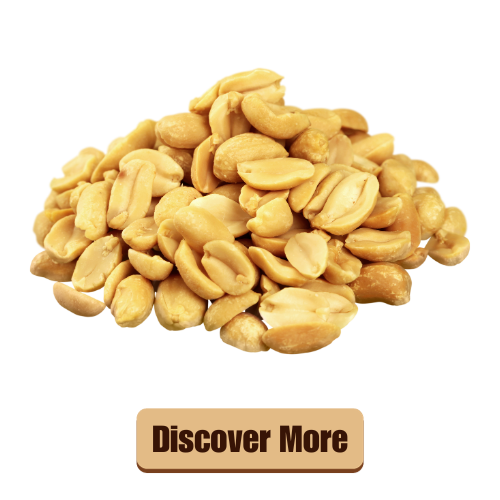
4. Boosting Brain Function: How Peanuts Nourish Your Mind
While peanuts are often celebrated for their physical health benefits, their positive impact on brain function is equally noteworthy. Peanuts contain essential nutrients like niacin, folate, and resveratrol, which have been shown to support cognitive health and mental well-being.
Niacin, for instance, aids in brain cell communication and may protect against Alzheimer’s disease. Folate is crucial for brain development and function, especially during pregnancy. Resveratrol has neuroprotective properties that can help in preventing cognitive decline.
To maximize the brain-boosting benefits of peanuts, consider the following tips:
1. Morning Snack: Incorporate peanuts into your morning routine to kickstart brain function for the day.
2. Study Aid: Snack on peanuts while studying or working to maintain focus and cognitive performance.
3. Nut Butter Smoothies: Blend peanut butter into your smoothies for a tasty and brain-healthy addition.
4. Peanut Toppings: Add peanuts to oatmeal or yogurt to enhance both flavor and nutritional value.
5. Moderation: Stick to appropriate portions to avoid excessive calorie intake.
6. Quality Matters: Opt for unsalted and unroasted peanuts to minimize sodium and preserve nutrient content.
7. Meal Planning: Include peanuts in salads, stir-fries, or as a garnish to enrich your meals both in taste and nutrition.
By incorporating these tips into your daily routine, you can take full advantage of the cognitive benefits that peanuts offer. Given the increasing prevalence of neurodegenerative diseases and cognitive decline, making mindful dietary choices like including peanuts can be a significant step toward maintaining a healthy and active brain.
Mastering the Art of Adding Peanuts to Your Daily Diet
Incorporating peanuts into your diet can be both a delicious and healthful endeavor. Given their versatility, peanuts can easily be added to a variety of dishes and snacks, making it simple to reap their numerous health benefits.
Whether you’re a smoothie aficionado or a salad lover, there’s a place for peanuts in your culinary repertoire. For smoothie lovers, consider a “Tropical Peanut Bliss” smoothie that combines the richness of peanuts with the freshness of tropical fruits.
Tropical Peanut Bliss Smoothie
Ingredients:
- 1 ripe banana
- 1 handful of spinach
- 1 cup of coconut milk
- 2 tablespoons of peanut butter
- A splash of pineapple juice
- 1 teaspoon of chia seeds (optional, for garnish)
Instructions:
1. Preparation: Gather all your ingredients and have your blender ready.
2. Blend Base Ingredients: Add the banana, spinach, coconut milk, and peanut butter to the blender.
3. Add Flavor: Pour in a splash of pineapple juice for a tropical twist.
4. Blend: Blend all the ingredients on high until smooth and creamy.
5. Garnish: Sprinkle chia seeds on top for added fiber and omega-3s.
6. Serve: Pour the smoothie into a glass and enjoy immediately.
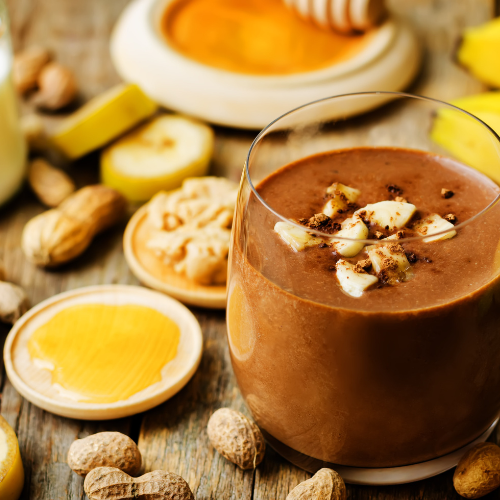
This smoothie recipe is designed to be both delicious and packed with nutrients, making it a perfect addition to your health-conscious diet. It incorporates peanuts in the form of peanut butter, adding both flavor and a host of health benefits.
Salads can also benefit from the crunch and flavor of peanuts. Toss them into a mixed greens salad, grilled chicken, and a light vinaigrette for a satisfying meal. Peanut butter can serve as a base for various sauces and dips, adding a rich, nutty flavor to your dishes.
If you’re looking for convenience, Candy Retailer has got you covered. We offer an extensive range of peanut products, from various brands to different flavors and pack sizes. Whether you prefer spicy, honey-roasted, or classic unsalted peanuts, we have something for everyone. Click here to discover our vast selection of peanuts.
By exploring these diverse ways to enjoy peanuts, you’re not just indulging in a tasty snack but also making a conscious choice to enhance your health and well-being.
Precautions and Allergies: What You Need to Know
While peanuts offer a range of health benefits, it’s essential to approach their consumption with caution and awareness. Moderation is key; excessive intake can lead to unwanted weight gain due to its high-calorie content. Stick to recommended serving sizes to enjoy the benefits without the drawbacks.
Allergies are another critical consideration. Peanuts are one of the most common allergens and can trigger severe reactions, including anaphylaxis, a life-threatening allergic response. Symptoms may include hives, difficulty breathing, and swelling of the face and throat. If you have a known peanut allergy, avoiding peanuts and peanut-containing products is crucial.
Additionally, individuals with certain health conditions, such as those prone to kidney stones, may need to limit their consumption of peanuts due to their oxalate content. Always consult with a healthcare provider if you have concerns about incorporating peanuts into your diet.
This section serves as a cautionary note, emphasizing the importance of moderation and awareness of potential allergies or health conditions that may necessitate avoiding peanuts. It’s always best to consult with a healthcare provider for personalized advice.
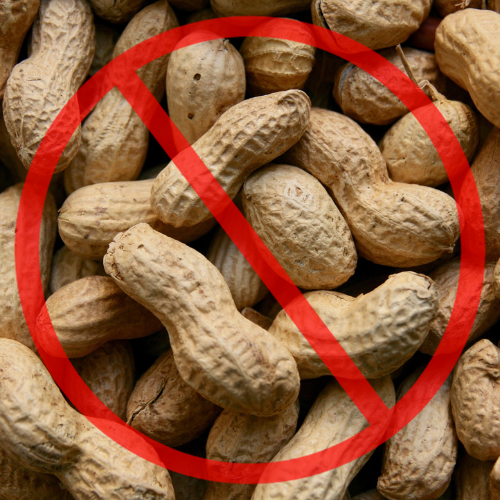
Reaping the Health Benefits of Peanuts: Your Next Steps
We’ve journeyed through peanuts’ multifaceted health advantages, from their rich nutritional profile to their role in weight management, heart health, and even cognitive function.
These small but mighty legumes are more than just a tasty snack; they’re a nutritional powerhouse that can contribute significantly to your overall well-being.
The importance of moderation and awareness of potential allergies cannot be overstated. Peanuts can be a boon to your health, but like anything, they should be consumed responsibly.
You’re in luck if you’re inspired to make peanuts a regular part of your diet. That’s right; here at Candy Retailer, we offer an extensive range of peanut products to suit every taste and preference. From various brands to different flavors and pack sizes, we have something for everyone.
Explore our vast selection of peanuts and take a proactive step toward a healthier, more nourished life.
Top 7 Questions People Have About the Health Benefits of Peanuts
Common questions about the health benefits of peanuts often focus on weight management, essential nutrients, and overall well-being.
People are particularly interested in how peanuts can support heart health and longevity, as well as their unique benefits for women. Concerns about allergies and weight gain are also frequently raised.
This set of FAQs aims to offer a well-rounded view of how peanuts can fit into a balanced diet.
1. Do peanuts help with weight loss?
Answer: Yes, peanuts are high in protein, which can help you feel full with fewer calories.
Additional Info: The fiber content in peanuts also aids in digestion and helps maintain a feeling of fullness, making them a good option for weight management when consumed in moderation.
2. What nutrients are found in peanuts?
Answer: Peanuts are rich in protein, vitamins, minerals, and antioxidants.
Additional Info: They also contain healthy fats, specifically monounsaturated and polyunsaturated fats, which are beneficial for heart health.
3. What are the health risks associated with peanuts?
Answer: Allergies are the primary health risk.
Additional Info: Peanut allergies can be severe and life-threatening. Always check for allergies before introducing peanuts into your diet.
4. Are peanuts healthy according to dietitians?
Answer: Yes, dietitians generally consider peanuts to be healthy.
Additional Info: They are nutrient-dense and offer a range of health benefits, but it’s important to consume them in moderation due to their high-calorie content.
5. Do peanuts have heart and longevity benefits?
Answer: Yes, studies have linked peanut consumption to heart health and longevity.
Additional Info: The antioxidants and healthy fats in peanuts contribute to cardiovascular health and may reduce the risk of heart disease.
6. What are the specific health benefits of peanuts for women?
Answer: Peanuts can improve nutrient intake, lower BMI, and reduce the risk of various diseases.
Additional Info: They are particularly beneficial for heart health and may also lower the risk of diabetes and certain types of cancer.
7. What are the adverse effects of consuming peanuts?
Answer: Besides allergies, excessive consumption can lead to weight gain.
Additional Info: Peanuts are calorie-dense, so overconsumption can contribute to weight gain and other health issues related to obesity.

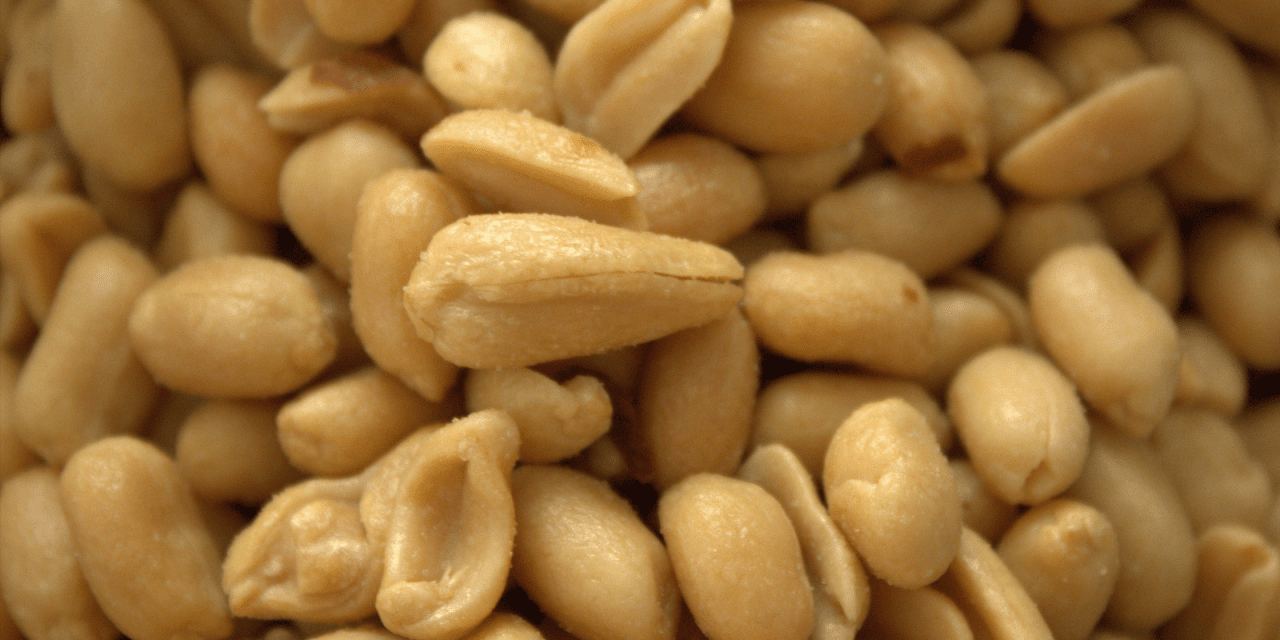
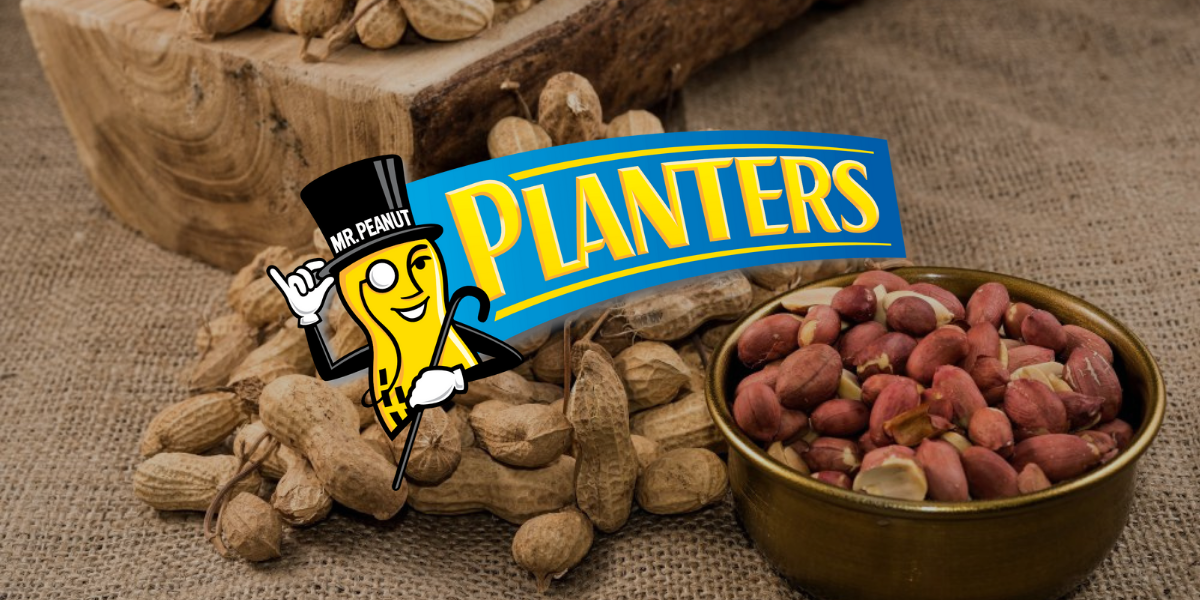
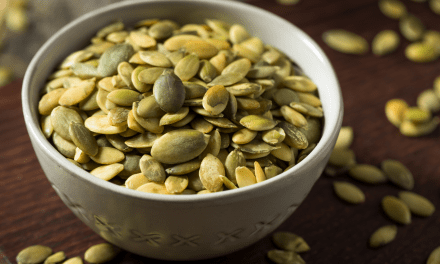
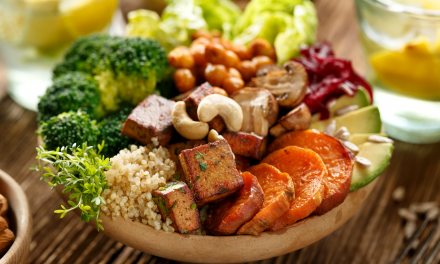
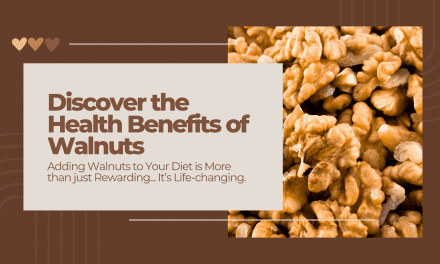
Recent Comments